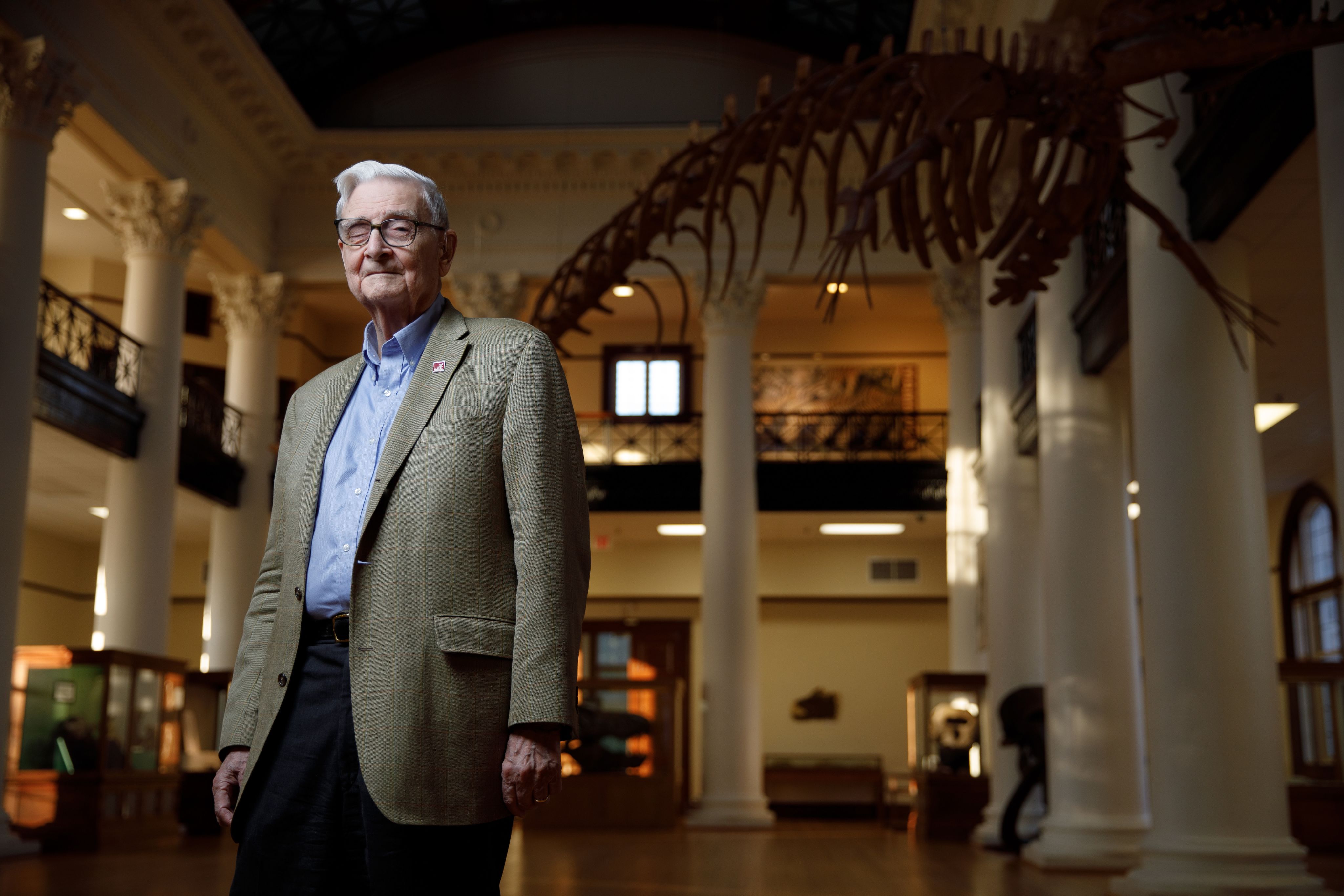GAME ON
Rece Davis Tells Legendary Stories

As the host of ESPN’s “College GameDay,” Rece Davis knows a thing or two about telling stories. After all, the college football pregame show didn’t earn eight Sports Emmys by hiring professional story tellers who are just “OK.” Rece himself has snagged five nominations for Outstanding Sports Personality Studio Host.
But, to hear the Muscle Shoals, Alabama, native tell it, one of the more valuable journalism lessons he learned while a University of Alabama student involved a UA professor explaining how one of Davis’ stories could have been so much more.
“‘It’s fine,’” Davis recalls Dr. Daniel Riffe remarking after reading one of his college journalism projects. “‘It could have been great, but it wasn’t. You’ve got to do more to get deeper into the story.’”
It’s moments like Riffe’s critique that Davis says still ring in his ears when he’s prepping for his ESPN broadcasts.
“I’ve never forgotten that,” says Davis. “A little moment like that always makes me think, ‘Did you tell the whole story? Have you gotten the right perspective? Have you gotten something that will resonate with people?’”
“There is nothing more important in television or in broadcasting or journalism than telling a story. Everything is a story. It doesn’t have to be a long-form or a three-hour documentary. It can be, in my case, a twenty-second lead-in, but you need to tell a story because stories live in people’s hearts.”
For almost 30 years, Davis’ on-screen charisma has captivated sports enthusiasts worldwide. Since joining ESPN in 1995, he’s been a fixture in major events like the College Football Playoff. And, when it comes to weaving basketball tales, Davis hosts ESPN’s Emmy Award-winning “College GameDay” basketball road show and calls Thursday night basketball games, while regularly contributing to “SportsCenter,” and “ESPN Radio” and hosting the NBA draft on ESPN.
The “College Football Playoff Top 25 Rankings Show,” which he hosted, received special recognition from the Sports Video Group for Outstanding Live Non-Game Production at the 2018 College Sports Media Awards. And, Davis has earned several awards – notably the Lester Jordan Award (2019) and the Jake Wade Award (2016), bestowed by College Sports Communicators for exceptional contributions to intercollegiate athletics.
Even with one of the most recognizable voices in college sports, Davis downplays his celebrity status, attributing his success to his unwavering passion for sports.
“All I’ve done is be able to pursue a job that I love and feel like I have never gone to work a day in my life because I would be studying and obsessing over sports, anyway, if I were selling insurance or working as a machinist or whatever it might be,” Davis explains. “This has always been something that has been a part of me, and I’m fortunate enough to get to pursue it.”
There was a time, during his youth, when Davis says he expected Alabama football to be an even bigger part of his life.
"I was like most every other kid in the state of Alabama, I think, I thought I was going to have this long and glorious career for the Crimson Tide and after that I was going to be a broadcaster,” Davis jokes. “ And, only part of that happened.”
It happened first for Davis in Tuscaloosa at WCFT-TV, Channel 33. First working as an intern, he continued there a few months after his UA graduation. He later worked as a reporter, weekend anchor and sports director for WRBL-TV in Columbus, Georgia, before joining WJRT-TV in Flint, Michigan, where he served as a sports anchor and reporter.

Davis says he considers hosting “GameDay” the best job in television but suggests the key to reaching the top in one’s profession is enjoying the journey rather than being hyper-focused on the destination.
“At Alabama, they like to call that ‘the process,’” he says, in a tip of the hat to former UA football head coach Nick Saban.
“I love my job at ESPN. But I also have really fond memories of carrying my own camera in Flint, Michigan, and watching Mateen Cleaves and Morris Peterson play basketball. Those were great. They were just high school basketball games.”
Ah, but for those attuned to sniffing out stories, good ones can be found and relayed whether originating from small, snow-covered high school gymnasiums in Michigan or from within a sun-soaked Bryant-Denny Stadium whose immensity eclipses everything in its presence.
“At Alabama, I felt like my teachers, not only in the School of Communication, but university wide, really helped me learn how to tell a story,” Davis says. “And, because of that, I’m really grateful.”








